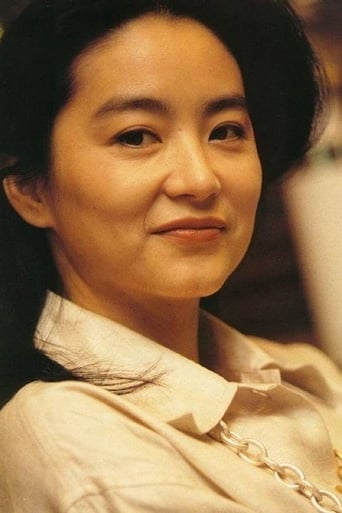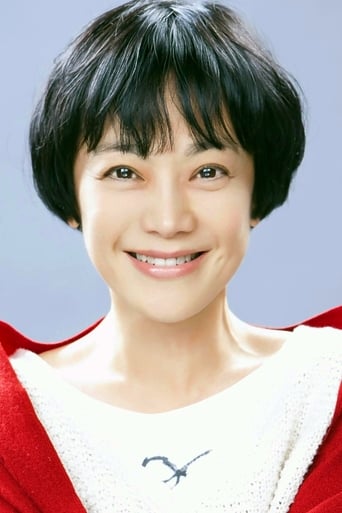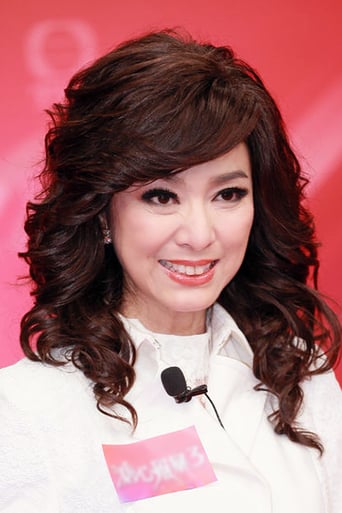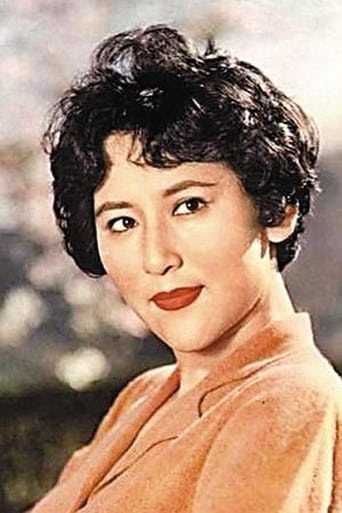Hellen
I like the storyline of this show,it attract me so much
WasAnnon
Slow pace in the most part of the movie.
CrawlerChunky
In truth, there is barely enough story here to make a film.
Humaira Grant
It’s not bad or unwatchable but despite the amplitude of the spectacle, the end result is underwhelming.
sarastro7
The Dream of the Red Chamber is based on the great medieval Chinese novel of the same title, and has also been turned into a much longer TV series. It is a love story about the noble Bao family, whose young son Bao Yu is in love with a childhood friend, Lin, from another wealthy family. But Lin is sickly, so Bao Yu's family wants him to marry his cousin instead, and sets up a wedding where Bao Yu thinks he is being married to Lin, but is in fact being married to his cousin. Much lamenting ensues, performed in the Huangmei musical genre, which is characterized by lightly comical and stylized acting and singing mixed with serious drama.This story is interesting in terms of gender history because it is almost entirely about women, which is unexpected for a tale of the medieval Asian aristocracy. Even the one major male part is played by a woman in the various film productions.This version of the tale from 1977 is not quite as good as the previous version from 1962, although the two versions are much alike. The storytelling and the dramatic acting is of higher quality in the '62 version, and the songs are longer and in a more classical style. The two movies seem to follow almost identical scripts, although there are a few scenes that have been changed (the whole episode with the naughty book is cut out of the newer version). In general, the character relationships, esp. that between Lin and Bao Yu, are much more clear and elaborated upon in the '62 version, while much of the storyline in this '77 version seems rushed, even to the extent of being confusing to viewers if they weren't already familiar with the previous version. Repeatedly, various scenes and details of the plot which were shown better in the previous movie are cut short. Here, too, Lin isn't shown to be all that sick (at least not until the end, where it is mainly out of love), while in the '62 version her obvious sickness and frailty greatly contribute to the tragical situations. The drama in the '62 version is significantly more heightened and stylized (but also caricatured) than in this version, probably because the actors and producers were more used to this sort of material. It must be admitted that the dramatic end sequence of this version is very effective, however. Some scenes are modeled very closely according to the '62 version, while the lamentation of Bao Yu after Lin's death is in a more modern, explicit and convincingly anguished style than the older version, which is very moving. Ultimately, though, I feel that the 1977 version gives the impression of being a largely unnecessary remake of the 1962 movie. This is the last hurrah of this genre; a late-comer and an also-ran which doesn't quite live up to the peak productions of the '60s. But of course it is warranted in that it treats us to the delectable looks of Brigitte Lin, Sylvia Chang, Kara Hui and several other beautiful actresses, and also because, being from 1977, it is perhaps easier to restore for DVD than the '62 version, the available DVD of which is of inferior crispness.I rate the '62 version 8 - possibly 9 - stars out of 10, while this '77 version gets 7 stars. It certainly has very good sequences, but on the whole it is not as good as the version from 15 years before.
conbhaill
I have been reading the original story, so naturally I am curious about this adaptation. By the third scene my heart is swimming in tears.What an amazing actress Miss Lin is, to be able to wrench such emotions from the audience. A truly stunning performance. Visually the film is a feast most astonishing, bringing an ancient Chinese style of illustration into a livid life form. The scene where Jia Baoyu visits the memorial to his true counterpart had the most sublime impact which I cannot describe. Small wonder that I read that this is Miss Lin's favourite film. Whilst the depth and nature of the other major characters was not fully explored, the cinematographic depiction of the reality of the world inhabited by Jia Baoyu and his true counterpart provided a most interesting and soul satisfying focus for any students of the original work. The capture of this essence by the director is a supreme achievement.
sangepengyou
Love discovered and lost is but one of the themes of this lavish Shaw Brothers' rendition of an old Chinese tale.Western audiences might find it confusing to find that the male romantic lead, Jia Baoyu, is played by a female-- but this is merely to show an excessive of sensitivity and tenderness, as well as a childlike innocence. And, while it might take a little getting used to, Brigitte Lin does a successful job in pulling it off.The movie plays like an opera. And, indeed, it does share a number of the characteristics of both Western and Chinese opera-- again with great success, but the plot moves along through both dialogue and song. The depths of the emotions chartered here are quite dramatic, and maybe a touch melodramatic, but that is a good representation of human nature, particularly in matters of the heart. There is an invariable drama to love which supersedes all reason. The primary plot of the slow realization of a first, true love is nicely set off by the secondary plot of jealousy and deceit among the family and its servants. It might almost seem heavy-handed, but a strong cast, boasting strong performances cares it off flawlessly.Newly remastered in lavish colors, this film is a true treasure in every sense of the word. Clearly, one of the Shaw Brothers' best.
Brian Camp
For this lavish 1977 Shaw Bros. adaptation of the classic Chinese novel, "The Dream of the Red Chamber," director Li Han-hsiang (LOVE ETERNE) cast two young Taiwanese actresses in the central roles of young lovers Jia Baoyu and Lin Daiyu. Brigitte Lin, then a star of contemporary Taiwanese melodramas and romantic comedies and eight years away from the success she would have in Hong Kong films like PEKING OPERA BLUES, plays the male role of Baoyu, the young scion of the Jia household, while Sylvia Chang (a future star presence in Hong Kong cinema in her own right) plays the frail Daiyu, a cousin who has been sent to live in the house after the death of her mother. The two teen-age cousins are drawn to each other at first sight and, over the years, despite the family's concerns, grow up and seek to marry. The female heads of the Jia household, led by Baoyu's grandmother (Wang Lai), mother (Ouyang Shafei), and manipulative aunt (Hu Chin), prefer that Baoyu marry another, healthier cousin and set in motion a plot to deceive him into doing so. The almost arbitrary decision to thwart the two lovers results in tragedy and great upheaval for all.I don't believe I've ever seen two star performances quite like those delivered by Lin and Chang in this film. Some might consider such work overly melodramatic, but I would argue that the entire film is driven by the psychological states of the two lead characters. They exist on an entirely different emotional plane from the other characters and everything is experienced through their perceptions. No one else in the film can see or feel what passes between them. They move differently from the other characters in a genre (Huangmei Opera) that normally relies a great deal on characters' stylized movements. They look out at the world differently. There are unforgettable closeups that convey multiple layers of psychic pain and loss. There is one chilling moment where the two gaze at each other across the chasms of madness, despair and grief and smile and slowly begin to laugh together while oblivious to anything or anyone else around them.Both characters are completely at odds with the strictures of the setting and the customary behavior expected of them. Every move they make, every gesture, every expression is one of dissatisfaction and even defiance, although they act out these feelings in different ways. Baoyu is an impulsive free spirit who does what he wants (and gets brutally punished for it by his father in one scene). Daiyu withdraws into herself, crying frequently and adopting a private ritual of burying fallen flower petals, a practice mocked by the other maidens. The two quickly understand how completely in tune they are with each other. Almost the entire second half of the film is devoted to the grief, melancholy, and outrage fueled by the family's ill-fated attempt to impose their will on Baoyu, with sad songs and dying laments on the soundtrack, creating a cinematic treatment of heartbreak as wrenching as any such treatment can be.There are so many other breathtaking achievements to single out in this movie, from the production design to the costumes to the music and song score to the powerful acting by the supporting cast. Ultimately, though, it's all about the two lead performances and their singular capacity to create a uniquely soul-piercing emotional experience that frees itself from the stylization of the Huangmei Opera school of film-making to create a one-of-a-kind Hong Kong film. (One need only compare this to the 1961 version, also produced by Shaw Bros. and relying on pretty much the same condensed adaptation, to see just how big a difference these two actresses make.) In the book, "The Last Star of the East: Brigitte Lin Ching Hsia and Her Films," by Akiko Tetsuya, Brigitte indicates in an interview that this film is the favorite of hers among the 100 films she's made. And now everyone can see why thanks to the recent release on DVD by Celestial Pictures of a beautifully restored edition.





